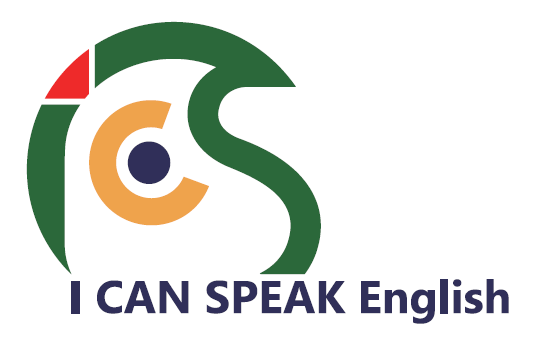Requirements for Teaching English in Vietnam
If you’re new to teaching English, you might wonder what qualifications are needed to work in Vietnam. While having a degree in Education or English can be advantageous, it’s not always necessary. The key requirements include a clear English accent, a passion for teaching, and a willingness to learn. Additionally, you’ll have a supportive team of colleagues to guide you along the way. Here’s an overview of the general requirements to teach English in Vietnam:
- 🎓 Bachelor’s Degree: A degree in any field is required to legally teach in Vietnam. Exceptions are made for those with at least five years of teaching experience.
- 📜 TEFL Certification: A TEFL, TESOL, CELTA, or DELTA certificate of at least 120 hours is mandatory. This certification meets legal requirements and equips you with essential teaching skills.
- 🌎 English Proficiency (For Non-Native Speakers): If you’re not a native English speaker and your degree isn’t in English, you’ll need an English proficiency certificate, such as IELTS or TOEFL. In Vietnam, native English speakers are defined as citizens of countries like the US, UK, Canada, Australia, New Zealand, Ireland, and South Africa.
- 🧑🏫 Teaching Experience: While experience is preferred, it’s not required. Schools in Vietnam welcome teachers from diverse backgrounds, including those new to the classroom.
- ✅ Clean Criminal Record: A background check is necessary for obtaining a work visa, ensuring a safe environment for students and staff.
- 🩺 Health Check: A basic health check is required to confirm you are mentally and physically fit for the role.
- ❤️ Passion for Vietnam and Its Culture: A love for Vietnam and its vibrant culture will enhance your teaching experience and help you connect with your students.
Teachers in Vietnam come from various professional backgrounds, such as photography, IT, law, and travel. As long as you have a strong command of the English language and a passion for education, you’ll fit right into Vietnam’s growing educational landscape.
How Qualifications and Experience Impact Teaching Rates
- Bachelor’s Degree: A 4-year degree is the minimum requirement and typically offers starting salaries of $1,000 USD/month.
- TEFL/TESOL Certification or Teaching Experience: A TEFL certificate or one year of teaching experience is essential for many schools, including ICS English. Completing an in-person TEFL course in Vietnam is a popular option, often including practical teaching experience and job placement.
- Teaching License or Education Degree: Licensed teachers or those with degrees in Education are eligible for positions at high-end international schools, with salaries starting at $1,700 USD and reaching $3,400 USD/month or more.
- Postgraduate Degree: A Master’s in Education (M.Ed) or a PGCE can increase your salary scale, improve your chances of securing leadership roles, and open opportunities at prestigious schools.
Additional Factors
- Location: Salaries and living costs are higher in major cities like Ho Chi Minh City or Hanoi, which offer more amenities but can be hectic. Smaller cities provide a quieter lifestyle and lower living costs.
- Hours: Teaching hours impact pay. Training schools typically require 20 teaching hours per week, with salaries ranging from $1,000–$1,800 USD. Public and international schools often demand more preparation and office hours but offer similar teaching hours.
- Benefits: Many schools provide housing and reimburse airfare. Health insurance is often included as a full or shared benefit between the teacher and employer.
With these factors in mind, teaching in Vietnam can be a fulfilling and rewarding experience, offering opportunities for personal and professional growth in a dynamic cultural environment.
What Foreign Teachers Should Know About Vietnam and Its Culture
Vietnam, nestled in Southeast Asia, boasts a fascinating cultural landscape shaped by its historical interactions with Chinese, French, and Western influences. This fusion has created a uniquely Vietnamese culture, defined by strong national pride and an optimistic outlook. English teachers and visitors often find themselves warmly embraced by the local community. To make the most of your time in Vietnam, understanding a few local customs can greatly enhance your experience and ease social interactions. While cultural missteps are generally forgiven, showing an effort to learn about Vietnamese traditions will help you connect with locals.
Communication in Vietnam
The national language is Vietnamese. Although most English teachers manage without speaking it fluently, learning a few phrases is a kind gesture of respect. For instance, “Xin chào” (zeen chow), meaning “hello,” is a commonly learned phrase that helps break the ice during everyday encounters.
Social Etiquette
- Smiling: Smiling is a significant part of Vietnamese culture, used to express everything from joy to discomfort. Understanding its many meanings can help avoid misinterpretations and build positive relationships.
- Public Behavior: Physical displays of affection are uncommon in public. Greetings often involve a slight bow or handshake, and removing shoes before entering a home is customary. Maintaining minimal eye contact with elders or individuals of higher status is seen as respectful rather than disengaged.
- Personal Questions: Locals may ask about your age, marital status, or income. These inquiries are not intrusive but are seen as a way to connect personally.
- Respecting ‘Face’: Preserving social dignity or ‘face’ is crucial. Handle conflicts or criticisms discreetly to avoid causing embarrassment or discomfort.
Dining Etiquette
When dining, hold your bowl with one hand while using utensils with the other. Always finish your meal to show appreciation, and never leave chopsticks standing upright in your bowl, as this resembles a funerary offering. Covering your mouth while using a toothpick is also polite.
Sacred Spaces
When visiting religious or sacred sites, dress modestly, seek permission before taking photos, and observe local customs to show respect for these important cultural locations.
Personal Safety
Vietnam is generally safe, but it’s wise to avoid displaying valuables or wearing excessive jewelry, particularly in crowded tourist areas, to minimize the risk of theft. Staying mindful of your belongings ensures a worry-free experience.
Language and Teaching
Do You Need to Speak Vietnamese to Teach English in Vietnam?
No, fluency in Vietnamese isn’t required to teach English. Classes are designed to immerse students in an English-speaking environment, promoting their language acquisition and improving their skills. Schools often prefer that teachers conduct lessons entirely in English to maintain this immersive approach.
The Role of English in the Classroom
The goal of teaching English in Vietnam is to enhance students’ reading, writing, listening, and speaking skills. Speaking exclusively in English helps create a consistent learning environment, enabling students to gain confidence and practice real-life language use.
Benefits of Learning Basic Vietnamese
While not mandatory, learning basic Vietnamese phrases can enrich your day-to-day life and ease interactions in markets, restaurants, and other social settings. It also shows respect for the local culture, which colleagues and students will deeply appreciate.
Cultural Sensitivity in the Classroom
A basic understanding of Vietnamese can assist with classroom management and help build rapport with students. Recognizing when Vietnamese is used inappropriately during lessons allows teachers to gently redirect the focus back to English, maintaining an immersive learning experience.
By embracing these cultural insights and linguistic opportunities, you can enrich your teaching journey in Vietnam while fostering meaningful connections within this vibrant community.
Is It Necessary to Be a Native English Speaker to Teach English in Vietnam?
A common question among those considering teaching English in Vietnam is whether being a native English speaker is mandatory. The answer depends on factors such as the institution, employer preferences, and the teacher’s qualifications.
While native English speakers are often favored, particularly in top-tier language centers and international schools, the growing demand for English education across Vietnam has opened doors for fluent English speakers from non-native backgrounds. However, these individuals must provide clear evidence of their language proficiency.
For non-native speakers, achieving a strong score on an English proficiency test, such as IELTS or TOEFL, is often required. This certification confirms their ability to teach effectively in English. Additionally, holding recognized teaching qualifications (e.g., TEFL, TESOL, CELTA) and having relevant teaching experience can significantly improve their employment prospects.
Employers in Vietnam prioritize a teacher’s ability to deliver engaging, high-quality lessons. Non-native speakers with proven language proficiency, strong teaching credentials, and a clear, comprehensible accent can secure rewarding teaching roles in Vietnam’s thriving education sector.
Can You Teach English in Vietnam Without a Degree?
Legally, teaching English in Vietnam requires at least a bachelor’s degree, as mandated by the government to maintain education standards. This degree is a critical requirement for obtaining a work permit, which is necessary for formal teaching roles. However, there is an exception: individuals with at least five years of relevant teaching experience may qualify without a degree. To be considered, these candidates must provide strong evidence of their teaching proficiency and expertise.
Despite these regulations, some schools hire teachers without degrees by circumventing the standard requirements. These teachers often work on alternative visas, such as tourist or student visas. Teaching on a tourist visa, for example, typically involves making frequent border runs every three months to extend one’s stay. While common, this approach is both costly and lacks long-term stability.
Similarly, working under a student visa presents its own challenges. The most significant drawback of teaching without a proper work permit or visa is the absence of legal protections. Teachers in such situations are vulnerable to unfair treatment, including unexpected contract changes, reduced pay, unpaid overtime, or even non-payment. By contrast, legal employment ensures essential protections and provides recourse in case of disputes.
While it is possible to teach English in Vietnam without a degree, the process is complicated and fraught with risks. For those committed to pursuing this path, it is crucial to thoroughly explore all options and understand the legal and practical implications.
Is a TEFL Certificate Necessary to Teach English in Vietnam?
Yes, a TEFL, TESOL, or CELTA certificate is required to legally teach English in Vietnam. The government mandates at least 120 hours of TEFL training to ensure teachers are equipped with the skills necessary for effective language instruction. This certification is essential for obtaining a work permit and is often a requirement during the visa application process. Holding one of these certifications significantly improves your job prospects, as schools tend to favor candidates with formal training.
These certifications provide critical training in teaching methodologies, classroom management, and lesson planning, ensuring you are well-prepared to deliver quality education. Without a TEFL certificate or equivalent qualification, you cannot legally obtain a work permit, and most language schools in Vietnam require it to maintain high teaching standards. While some employers may consider applicants with extensive teaching experience, having a TEFL certification remains a crucial legal and professional requirement.
Taking a TEFL Course in Vietnam
Completing a TEFL course in Vietnam offers several advantages. It allows you to familiarize yourself with the local culture, build a network of fellow educators, and gain insight into the Vietnamese education system. Many in-person courses include job placement guarantees, providing peace of mind and enabling you to focus on developing your teaching skills.
Online TEFL courses are also widely accepted, but it is crucial to choose a reputable program that includes a practical teaching component. This hands-on experience is highly valued by employers as it prepares you for real-world teaching scenarios. If you cannot take an in-person course, ensure your chosen online program meets the requirements of Vietnamese schools and the government.
TEFL vs. CELTA
TEFL and TESOL certifications are generally more accessible and flexible, making them a popular choice for teaching in Vietnam. These courses can be tailored to suit various teaching environments and are sufficient for most teaching roles. However, the CELTA, a prestigious qualification awarded by Cambridge University, is highly regarded in the teaching community. Completing a CELTA course provides advanced training and can give you a competitive edge in the job market.
TEFL Internships in Vietnam
A TEFL internship in Vietnam is an excellent way to gain hands-on teaching experience while completing your certification. These internships often combine classroom practice with training, easing your transition into teaching. They also allow you to immerse yourself in Vietnamese culture and gain practical insights into the local education system, boosting your employability and confidence as a teacher.
Whether you choose a TEFL, TESOL, or CELTA certification, having this qualification is essential for legal and professional success as an English teacher in Vietnam.
Can You Teach English in Vietnam Without Experience?
Yes, starting a teaching career in Vietnam without prior experience is not only possible but also quite common. The growing demand for English education in Vietnam creates opportunities for enthusiastic newcomers eager to embrace both the language and the cultural experience. While previous teaching experience can be an asset, it is not a strict requirement. Many language schools and educational institutions are willing to hire native or fluent English speakers with strong educational backgrounds, even if they have not taught before.
Steps for Beginners to Start Teaching in Vietnam
- Obtain a TEFL Certification
Earning a TEFL (Teaching English as a Foreign Language) certificate is highly recommended for those without teaching experience. This qualification equips you with essential skills such as lesson planning, classroom management, and effective teaching techniques. It reassures employers that you are prepared for the role and capable of delivering quality instruction. - Participate in In-House Training Programs
Many schools in Vietnam offer in-house training tailored to their curriculum and teaching environment. These programs provide practical guidance to help new teachers build confidence and develop the skills needed to succeed in the classroom. - Join Mentorship Programs
Educational institutions often pair novice teachers with experienced mentors. Mentors share valuable strategies for managing classrooms, engaging students, and understanding cultural nuances, helping beginners adapt to their new roles more smoothly. - Start with Younger Students
Teaching children can be an excellent entry point for new teachers. It is often less intimidating and provides a solid foundation for developing teaching skills. With experience, you can transition to teaching older students or adults. - Consider Volunteer Teaching
Volunteering at community centers, rural schools, or orphanages is another way to gain practical experience. These opportunities demonstrate your dedication to teaching and allow you to hone your skills in real-world scenarios.
Final Thoughts
While prior experience may lead to higher salaries and more competitive job offers, it is not a strict requirement for teaching English in Vietnam. With a TEFL certificate, a willingness to learn, and adaptability, beginner teachers can find rewarding opportunities to start their teaching careers in Vietnam. The key is to approach the experience with enthusiasm and a readiness to grow professionally.
When to Apply for Teaching Jobs in Vietnam
Schools in Vietnam operate on a schedule similar to those in Western countries. The academic year consists of two semesters:
- First Semester: August to December.
- Second Semester: January to June, following a short holiday break.
Schools then close for an extended summer vacation.
Key Hiring Periods
The prime times for hiring coincide with the start of each semester:
- First Semester: Schools typically begin recruiting 3 to 4 months in advance.
- Second Semester: Recruitment usually starts 1 to 2 months before the semester begins.
International schools and universities generally adhere to these hiring windows, with only a few exceptions.
Language Centers
For language centers, hiring is more flexible and occurs throughout the year. This means you can apply for teaching positions at these institutions whenever you’re ready to start your journey as an English teacher in Vietnam.
How to Apply for Teaching Jobs in Vietnam
Vietnam’s rapidly growing economy has created a strong demand for English teachers. With English being a core subject in schools and widely taught in language centers across cities, there are ample opportunities for educators. However, not all teaching positions offer the same benefits or working conditions, and the most sought-after institutions attract significant competition. To improve your chances of landing a desirable teaching role, consider the following tips:
Maintain a Professional Appearance
- Dress Code: Schools in Vietnam value professionalism, so dressing in neat, conservative attire is essential. Ensure your appearance is polished, with well-groomed hair. Men should keep beards neatly trimmed or clean-shaven.
- Tattoos and Piercings: Conceal tattoos and remove visible piercings, as some schools prefer a traditional appearance for their teaching staff.
- Presentation: Whether submitting a photo, participating in an online interview, or attending in person, always present yourself professionally.
Exude a Friendly Demeanor
- Approachability: Schools prioritize teachers who are approachable and can foster a welcoming atmosphere, particularly for young learners. A genuine smile, positive attitude, and sense of humor are highly valued traits.
- Engagement: Show that you can connect with students and create a positive learning environment.
Communicate Clearly
- Speech Clarity: Speak clearly and at a moderate pace during interviews or demo lessons. Make sure your speech is easy to understand, especially for non-native English speakers. If you have a strong accent, enunciate carefully.
Craft a Strong CV and Introduction
- Tailored CV: Highlight your teaching qualifications and experience in your CV, emphasizing skills relevant to English education. Share your motivation for teaching in Vietnam to add a personal touch.
- Introduction Video: Create a short introduction video to showcase your personality, teaching style, and enthusiasm. This can help you stand out among other applicants.
By adhering to these strategies, you’ll present yourself as a capable, professional, and enthusiastic candidate, significantly improving your prospects of securing a rewarding teaching position in Vietnam.
How to Obtain a Visa to Teach English in Vietnam
To legally teach English in Vietnam, you’ll need a work permit, which first requires obtaining a Business Visa. There are two common approaches to this process:
Option 1: Apply for a Business Visa Before Arrival
After securing a job, you can apply for a Business Visa in your home country before traveling to Vietnam. Upon your arrival, your employer will assist with processing your work permit. Requirements may vary depending on your country of residence, so it’s best to contact your local Vietnamese embassy or consulate for guidance. Generally, you’ll need the following documents:
- A passport with at least six months of validity
- A completed visa application form
- Passport-sized photos
- An invitation or sponsorship letter from a company in Vietnam
Option 2: Enter on a Tourist Visa and Transition to a Business Visa
Many teachers opt to arrive in Vietnam on a Tourist Visa and then transition to a Business Visa while in the country. This can easily be done online using the Visa on Arrival service. Applying for a three-month visa is a smart choice, as it provides extra time in case you don’t secure a job immediately. Once employed, your company will handle the Business Visa application process, and most employers cover the associated costs.
Work Permit Process
After obtaining a Business Visa, your employer will help you apply for a work permit. The required documents typically include:
- An original or authenticated copy of your degree
- A teaching certificate (such as TEFL, TESOL, or CELTA) if required
- A police background check
- A health check report
- Your passport and passport-sized photos
- Supporting documents provided by your employer
By following these steps and ensuring you have the necessary documentation, you’ll be well on your way to legally teaching English in Vietnam.
To secure a visa for teaching in Vietnam, you must have certain documents authenticated by the Vietnamese Embassy. This process can be complex, but our service simplifies it for you, handling everything from start to finish.
Why Choose ICS English for Document Legalization?
- Avoid the Hassle: We take care of the entire legalization process, including obtaining a background check, so you don’t have to worry about the details.
- No Travel Needed: Our services are available regardless of your location, saving you time and travel expenses by delivering documents directly to the embassy.
- Guaranteed Results: Focus on your move or new job while we handle the paperwork. We guarantee our services and provide updates throughout the process.
Steps to Prepare for Teaching English in Vietnam
Document Preparation
Identify the documents required for legalization:
- For a work permit, typically required documents include a university degree and a recent background check.
- For teaching, additional documents such as a 120-hour TEFL certificate, a teaching license, or a reference letter confirming 2+ years of classroom experience may be needed.
- If bringing family, you’ll need to legalize your marriage license and/or your children’s birth certificates.
Common Documents for Legalization
- Degree
- Background check
- Teaching certificate
- Birth certificates
- Marriage license
If you have additional personal or corporate documents, we can handle those too!
Background Check and Legalization Process
For U.S. Documents
The legalization process involves 3–5 steps, depending on the state:
- Notarization: Certified copies of documents are generally acceptable. Confirm with your employer if originals are needed.
- County Clerk Authentication: Required for specific states (e.g., Alabama, Georgia, Hawaii).
- Secretary of State Authentication: Documents must be authenticated at the state level, noting their intended use in Vietnam.
- U.S. Department of State Authentication: Necessary for documents from certain states or all FBI checks.
- Vietnam Embassy Legalization: Submit documents for final approval.
For Other Countries
The general steps are similar but vary slightly depending on the country:
- Canada: Notarize documents, legalize them via Global Affairs Canada, and finalize at the Vietnamese consulate.
- UK: Notarize through a solicitor, legalize via the Foreign Commonwealth Office, and finalize at the Vietnamese Embassy.
- Australia/New Zealand: Notarize locally, legalize through the relevant foreign affairs office, and finalize at the Vietnamese Embassy.
- South Africa: Notarize at high provincial courts, legalize through DIRCO, and finalize at the Vietnamese Embassy.
Pricing for Vietnam Document Legalization
- Certified Copy Legalization: Starting at $140 + shipping
- FBI Background Check Legalization: $160 + shipping
- Discounts are available for partially completed processes.
Final Steps: Work Permit and Visa Application
- Work Permit: Once your documents are legalized, send scanned copies to your employer in Vietnam. They will apply for work permit approval, stamp the permit, and send it to you.
- Work Visa: Use the approved work permit to apply for a visa at the Vietnam consulate or embassy in your home country. This can be done by mail or in person.
Our comprehensive service ensures a seamless and stress-free experience, whether you’re a U.S. document holder or working from abroad.









